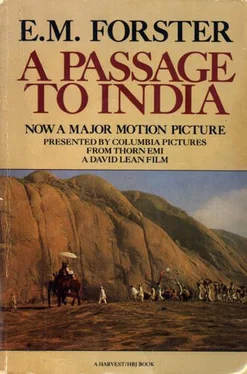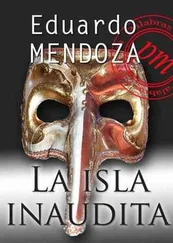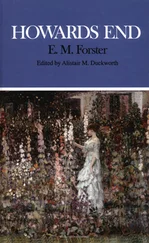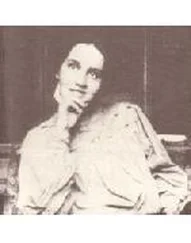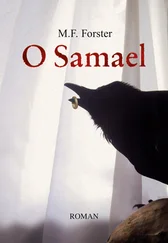"If my teeth are to be cleaned, I don't go at all. I am an Indian, it is an Indian habit to take pan. The Civil Surgeon must put up with it. Mohammed Latif, my bike, please."
The poor relation got up. Slightly immersed in the realms of matter, he laid his hand on the bicycle's saddle, while a servant did the actual wheeling. Between them they took it over a tintack. Aziz held his hands under the ewer, dried them, fitted on his green felt hat, and then with unexpected energy whizzed out of Hamidullah's compound.
"Aziz, Aziz, imprudent boy…" But he was far down the bazaar, riding furiously. He had neither light nor bell nor had he a brake, but what use are such adjuncts in a land where the cyclist's only hope is to coast from face to face, and just before he collides with each it vanishes? And the city was fairly empty at this hour. When his tyre went flat, he leapt off and shouted for a tonga.
He did not at first find one, and he had also to dispose of his bicycle at a friend's house. He dallied furthermore to clean his teeth. But at last he was rattling towards the civil lines, with a vivid sense of speed. As he entered their arid tidiness, depression suddenly seized him. The roads, named after victorious generals and intersecting at right angles, were symbolic of the net Great Britain had thrown over India. He felt caught in their meshes. When he turned into Major Callendar's compound he could with difficulty restrain himself from getting down from the tonga and approaching the bungalow on foot, and this not because his soul was servile but because his feelings—the sensitive edges of him—feared a gross snub. There had been a "case" last year—an Indian gentleman had driven up to an official's house and been turned back by the servants and been told to approach more suitably—only one case among thousands of visits to hundreds of officials, but its fame spread wide. The young man shrank from a repetition of it. He compromised, and stopped the driver just outside the flood of light that fell across the verandah.
The Civil Surgeon was out.
"But the sahib has left me some message?"
The servant returned an indifferent "No." Aziz was in despair. It was a servant whom he had forgotten to tip, and he could do nothing now because there were people in the hall. He was convinced that there was a message, and that the man was withholding it out of revenge. While they argued, the people came out. Both were ladies. Aziz lifted his hat. The first, who was in evening dress, glanced at the Indian and turned instinctively away.
"Mrs. Lesley, it is a tonga," she cried.
"Ours?" enquired the second, also seeing Aziz, and doing likewise.
"Take the gifts the gods provide, anyhow," she screeched, and both jumped in. "0 Tonga wallah, club, club. Why doesn't the fool go?"
"Go, I will pay you to-morrow," said Aziz to the driver, and as they went off he called courteously, "You are most welcome, ladies." They did not reply, being full of their own affairs.
So it had come, the usual thing—just as Mahmoud Ali said. The inevitable snub—his bow ignored, his carriage taken. It might have been worse, for it comforted him somehow that Mesdames Callendar and Lesley should both be fat and weigh the tonga down behind. Beautiful women would have pained him. He turned to the servant, gave him a couple of rupees, and asked again whether there was a message. The man, now very civil, returned the same answer. Major Callendar had driven away half an hour before.
"Saying nothing?"
He had as a matter of fact said, "Damn Aziz"—words that the servant understood, but was too polite to repeat. One can tip too much as well as too little, indeed the coin that buys the exact truth has not yet been minted.
"Then I will write him a letter."
He was offered the use of the house, but was too dignified to enter it. Paper and ink were brought on to the verandah. He began: "Dear Sir,—At your express command I have hastened as a subordinate should—" and then stopped. "Tell him I have called, that is sufficient," he said, tearing the protest up. "Here is my card. Call me a tonga."
"Huzoor, all are at the club."
"Then telephone for one down to the railway station." And since the man hastened to do this he said, "Enough, enough, I prefer to walk." He commandeered a match and lit a cigarette. These attentions, though purchased, soothed him. They would last as long as he had rupees, which is something. But to shake the dust of Anglo-India off his feet! To escape from the net and be back among manners and gestures that he knew! He began a walk, an unwonted exercise.
He was an athletic little man, daintily put together, but really very strong. Nevertheless walking fatigued him, as it fatigues everyone in India except the new-corner. There is something hostile in that soil. It either yields, and the foot sinks into a depression, or else it is unexpectedly rigid and sharp, pressing stones or crystals against the tread. A series of these little surprises exhausts; and he was wearing pumps, a poor preparation for any country. At the edge of the civil station he turned into a mosque to rest.
He had always liked this mosque. It was gracious, and the arrangement pleased him. The courtyard—entered through a ruined gate—contained an ablution tank of fresh clear water, which was always in motion, being indeed part of a conduit that supplied the city. The courtyard was paved with broken slabs. The covered part of the mosque was deeper than is usual; its effect was that of an English parish church whose side has been taken out. Where he sat, he looked into three arcades whose darkness was illuminated by a small hanging lamp and by the moon. The front—in full moonlight—had the appearance of marble, and the ninety-nine names of God on the frieze stood out black, as the frieze stood out white against the sky. The contest between this dualism and the contention of shadows within pleased Aziz, and he tried to symbolize the whole into some truth of religion or love. A mosque by winning his approval let loose his imagination. The temple of another creed, Hindu, Christian, or Greek, would have bored him and failed to awaken his sense of beauty. Here was Islam, his own country, more than a Faith, more than a battle-cry, more, much more… Islam, an attitude towards life both exquisite and durable, where his body and his thoughts found their home.
His seat was the low wall that bounded the courtyard on the left. The ground fell away beneath him towards the city, visible as a blur of trees, and in the stillness he heard many small sounds. On the right, over in the club, the English community contributed an amateur orchestra. Elsewhere some Hindus were drumming—he knew they were Hindus, because the rhythm was uncongenial to him,—and others were bewailing a corpse—he knew whose, having certified it in the afternoon. There were owls, the Punjab mail… and flowers smelt deliciously in the station-master's garden. But the mosque—that alone signified, and he returned to it from the complex appeal of the night, and decked it with meanings the builder had never intended. Some day he too would build a mosque, smaller than this but in perfect taste, so that all who passed by should experience the happiness he felt now. And near it, under a low dome, should be his tomb, with a Persian inscription:
Alas, without me for thousands of years
The Rose will blossom and the Spring will bloom,
But those who have secretly understood my heart—
They will approach and visit the grave where I lie.
He had seen the quatrain on the tomb of a Deccan king, and regarded it as profound philosophy—he always held pathos to be profound. The secret understanding of the heart! He repeated the phrase with tears in his eyes, and as he did so one of the pillars of the mosque seemed to quiver. It swayed in the gloom and detached itself. Belief in ghosts ran in his blood, but he sat firm. Another pillar moved, a third, and then an Englishwoman stepped out into the moonlight. Suddenly he was furiously angry and shouted: "Madam! Madam! Madam!"
Читать дальше
